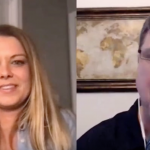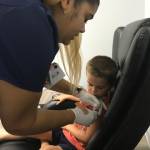Series: What do health care professionals have to say? *Taylor Holroyd: the Ph.D. Candidate*
Social media has made it easy for people to voice their political views and issues with trust in the government. Federal agencies like the Centers for Disease Control and Prevention (CDC) come up a lot with those questioning vaccines, so I wonder: Have vaccination rates been falling due to lost trust in public health agencies? […]




